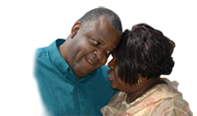News / Document Search Results
3/3/2014
Webinar: Autism Spectrum Disorder and Children Who Are Deaf or Hard of Hearing
AUCD webinar - February 2014
Funded through the Maternal and Child Health Bureau (MCHB), the LEND Pediatric Audiology Training Program supports 10 LEND programs to increase the didactic content and clinical experience of trainees in pediatric audiology. This webinar used a combination of information from the literature, retrospective chart review of children with a dual diagnosis and feedback from family and professional focus groups to assist the learner in understanding the unique needs of children who are deaf/hard of hearing with an autism spectrum disorder. Red Flags for atypical communication were presented as well as information about the needs related to communication, functional skills, and integrated care models.

1/14/2014
Autism Spectrum Disorder in Children who are Deaf/Hard of Hearing
The 2014 LEND Pediatric Audiology Pre-EHDI Workshop
Join us for this interactive workshop designed to encourage active learning and case-based discussions. Participants will learn about issues and challenges surrounding hearing loss and autism spectrum disorder while learning about strategies currently used by LEND programs. At the workshop, participants will be placed in large and small group settings and will be encouraged to share personal examples while learning best practices used by other LEND programs.
3/29/2011
ABC's of Listening and Language - Marion's Way Preschool
JFK Partners at University of Colorado-Denver
This powerpoint presentation offers a fun way to teach parents how to encourage their child who has been diagnosed with hearing loss.
3/29/2011
The Univ. of Pittsburgh UCLID Center: An Interdisciplinary Collaboration (poster)
LEND Pediatric Audiology Trainee Poster: EHDI Conference 2011
This poster was presented by LEND Pediatric Audiology Trainees during the EHDI Conference in February 2011 in Atlanta, GA.
3/29/2011
URLEND Interactive Notebook for Families
University of Utah Regional LEND (URLEND)
The Interactive Notebook for Families was created as a resource for families who seek clear and unbiased information on their child's hearing loss. This book may also serve as a place for families to record and store important information.
3/29/2011
Working with Challenging and Under-involved Families
JFK Partners at University of Colorado-Denver
This powerpoint presentation offers suggestions on how to work effectively with familes who are considered difficult or challenging.
3/24/2011
EHDI Conference 2011, Index of Presentations
Presentations from the 10th Annual National EHDI Meeting held February 21-22, 2011 in Atlanta, Georgia
In its 10th year, the EHDI conference has built a strong reputation for bringing together a wide variety of attendees including those who: work in state Early Hearing Detection and Intervention programs; assist in EHDI efforts on the federal level; provide screening, diagnostic and early intervention support at the state/ local level to young children with hearing loss and their families; champion Medical Home activities within each state; are parents of children with hearing loss; or are deaf or hard-of-hearing adults who are helping to expand opportunities for young children with hearing loss.
11/29/2010
Getting a Cochlear Implant
This picture booklet was written by Kathryn Schneider, an audiology doctoral student at Vanderbilt University. The booklet describes the process of children getting a cochlear implant.
5/14/2010
Early Hearing Detection & Intervention (EHDI) Program EHDI > Links Espaņol (Spanish) Related Links DISCLAIMER: Links to organizations outside of CDC are included for information only. CDC has no control over the information at these sites. View
This is a link related to the Early Hearing Detection & Intervention (EHDI) Program.
5/14/2010
A Guide to Pediatric Audiologists in Utah
This information was compiled from a statewide survey of licensed audiologists in July 2008 to serve as a resource for families, medical home providers, and newborn hearing screening programs.
5/14/2010
About Hearing Loss
Hearing loss is the partial or extreme loss of a person?s ability to receive information by listening. The most extreme cases of hearing loss are known as deafness, a term used when the hearing loss is so severe a person cannot understand information when listening is the sole means of receiving information.
5/14/2010
Deafness and hearing loss
This is a link related to the Early Hearing Detection & Intervention (EHDI) Program.
5/14/2010
Early Hearing Detection & Intervention (EHDI) Program
Each year in the United States (U.S.), more than 12,000 babies are born with a hearing loss. The cause of hearing loss for many babies is not known, and hearing loss can go unnoticed for years. When a child?s hearing loss is identified soon after birth, the child?s family and doctors can make sure the child gets services (e.g., intervention) he or she needs at an early age. This will help the child develop communication and language skills that will last a lifetime.
5/14/2010
Federal agencies
This is a link related to the Early Hearing Detection & Intervention (EHDI) Program.
5/14/2010
General Information About Hearing Loss
Hearing loss affects 12,000 children born in the United States each year, making it the most common sensory birth difference. Typically, babies and young children learn to talk by listening to the voices of family members and caregivers from the time they are born. Any degree of hearing loss has the potential to interrupt speech and language development.
5/14/2010
Hearing & Hearing Loss
As of 2009, there are some 315 million people in the United States. Of those, it is estimated about 36 million have hearing loss. Although hearing loss is often associated with aging, hearing loss is clearly present in newborns, children, teenagers, young adults and adults. Healthy human ears can perceive an enormous range of sounds in terms of pitch and loudness. Hearing is the primary sense through which we learn speech and language. The ability to hear clearly from birth is extremely important with regard to normal development of speech and language skills, auditory processing skills, a sense of self, as well as normal emotional and psychological well-being and more.







